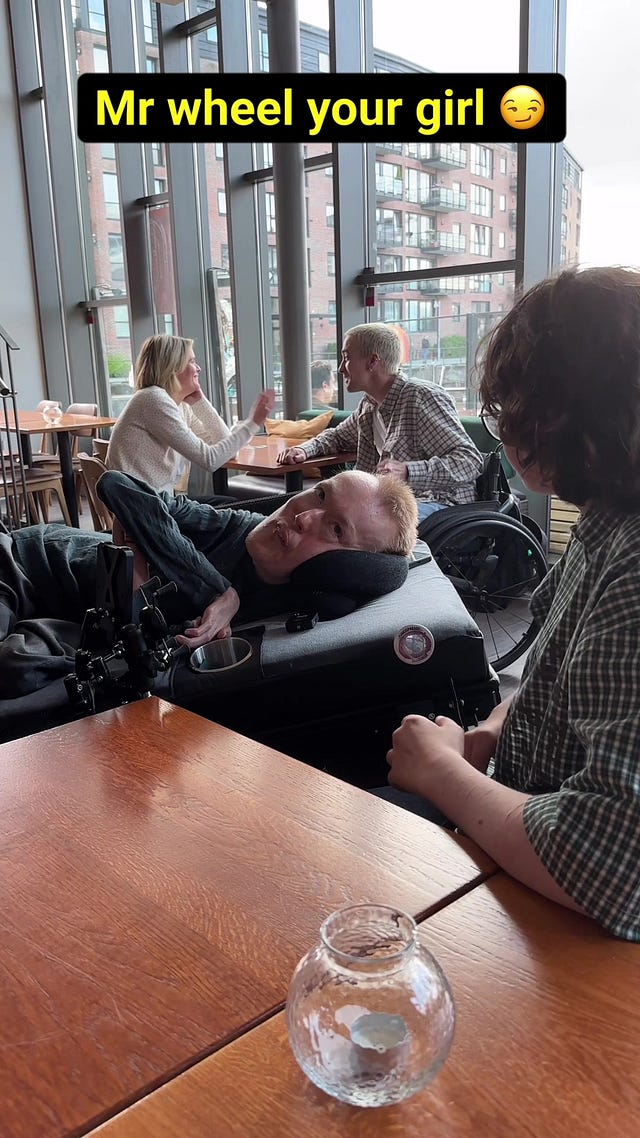“The way you rebuild trust is by making the invisible visible again.”
— Brené Brown
We live in an era thick with signals and thin on substance. Everywhere we look, there are performances of virtue—corporate slogans, political gestures, influencer campaigns—each one a desperate attempt to be seen as good, trustworthy, aligned. And yet, few of us believe any of it. Virtue signaling has become a punchline, not because people don’t value virtue, but because we no longer know where it lives.
The crisis of trust is not just about lies or corruption. It’s deeper than misinformation. It’s spiritual. It’s moral. And it's cultural.
We do not trust our institutions because they no longer feel human. They cannot be vulnerable. They cannot apologize. They cannot say, “We were wrong, and we need your help to get it right.” But trust requires precisely that: vulnerability. And vulnerability, as Brené Brown has so often argued, is not weakness—it’s the birthplace of courage, empathy, and connection. Without it, we can’t build anything real together.
So what do we do in a world of eroded trust and weaponized performance? How do we restore the invisible bonds that hold a society together?
One answer is story. Another is ritual. And both may require something radical: a Ministry of Narratives.
Virtues as Social Infrastructure
Virtues are not just private character traits—they are public resources. A society that rewards honesty, courage, care, and generosity doesn’t do so because those are abstract ideals. It does so because those values work. They make cooperation possible. They make politics tolerable. They make collective life worth living.
David Graeber once observed that much of what we call “reality” is simply a shared fiction. Money. Law. Authority. All of these are stabilized by narratives—told and retold until they become common sense. And when these shared stories collapse, so too do the systems built on top of them.
We are living through such a collapse now. Not just of institutions, but of the moral stories that justify them.
When our governments stop telling coherent stories, we look elsewhere—for enemies, for scapegoats, for saviors. That’s how conspiracy theories spread. That’s how authoritarianism thrives. In the absence of trusted narratives, we latch onto anything that feels emotionally real.
Which is why we need something like a Ministry of Narratives.
What Would a Ministry of Narratives Do?
Not a propaganda bureau. Not a communications office. But a civic institution dedicated to the cultural and ethical storytelling a democratic society requires.
It would work across disciplines—literature, journalism, oral history, digital media, education. It would surface forgotten stories. It would challenge dominant ones. It would create rituals and platforms for public reflection, reconciliation, and renewal.
It would be messy. Participatory. Vulnerable.
Its staff would not be technocrats, but artists, elders, and facilitators. Not spin doctors, but memory keepers and meaning-makers. The Ministry would not pretend to have all the answers—it would ask the questions that invite us to listen to each other again.
It would function like a cultural immune system—responding to social trauma with narrative repair.
Virtue signaling isn’t the problem. It’s the symptom. It shows that people want to live in a moral society, but don’t know how. Our public space is full of signals because the institutions that once embodied those virtues no longer do.
The task, then, is not to suppress signaling but to deepen it. To root it in shared rituals and lived experiences. A Ministry of Narratives could help do that—by fostering the kinds of symbolic infrastructure that allow virtue to be more than branding.
Think of what happens when a society has rituals of mourning, of welcoming, of dissent, of forgiveness. Think of how those rituals train us, remind us, and hold us accountable to values that otherwise fade under pressure.
The Le Guin Hypothesis
Ursula K. Le Guin once wrote:
"We live in capitalism. Its power seems inescapable—but then, so did the divine right of kings."
Le Guin understood that power rests on narrative. And so does resistance. Her fiction gave us blueprints for alternative worlds—matriarchal, anarchist, cooperative, slow. She didn’t just critique empire—she built moral ecosystems where other virtues could thrive.
That’s the role we must now reclaim—not just as writers, but as citizens. As builders of symbolic worlds.
If we want democracy to survive this century, we need more than elections and laws. We need moral and symbolic repair. We need leaders who can be vulnerable. Institutions that can change their minds. Communities that know how to listen and remember.
Virtue cannot be commanded. But it can be cultivated. And perhaps it’s time to make that cultivation official.
A Ministry of Narratives may sound fantastical. But so did democracy, once.
 Tiktok failed to load.
Tiktok failed to load.Enable 3rd party cookies or use another browser






Trust may support vulnerability but risk is what defines a trust situation. It's kind of a chicken and egg problem. Trust and risk are indeed intertwined, but it’s the presence of risk—uncertainty about another’s behavior or intentions—that defines a trust situation. If there's no possibility of betrayal, disappointment, or harm, then there's no real "trust" being exercised; there's simply certainty or control. Trust, then, is meaningful only in contexts where the outcome isn't guaranteed.
Vulnerability often arises because trusting someone exposes us to potential consequences—we're opening ourselves up. But that vulnerability, while supported by trust, doesn’t define trust. It's the conscious choice to accept risk based on our judgment of the other’s character, ability, or reliability.
So in short: risk makes trust necessary, and trust makes vulnerability tolerable. Without risk, trust is irrelevant. Without trust, vulnerability becomes unsafe.
This feels like you are doing a thought experiment about the opposite of the Ministry of Canadian Heritage.
https://r.flora.ca/p/canadian-heritage
While I personally believe the population of this continent could do that, I'm not convinced it can happen within the settler-colonial context of the "Dominion of Canada" or the so-called "United States". These are sets of institutions that rely on dishonesty about their origin stories and ongoing activities in order to continue to exist. Moving away from virtue signalling performances to actually exhibiting true virtue requires a Truth and Reconcilliation process which hasn't actually started yet (a vast majority of Canadians haven't started the Truth part, which comes before Reconcilliation).